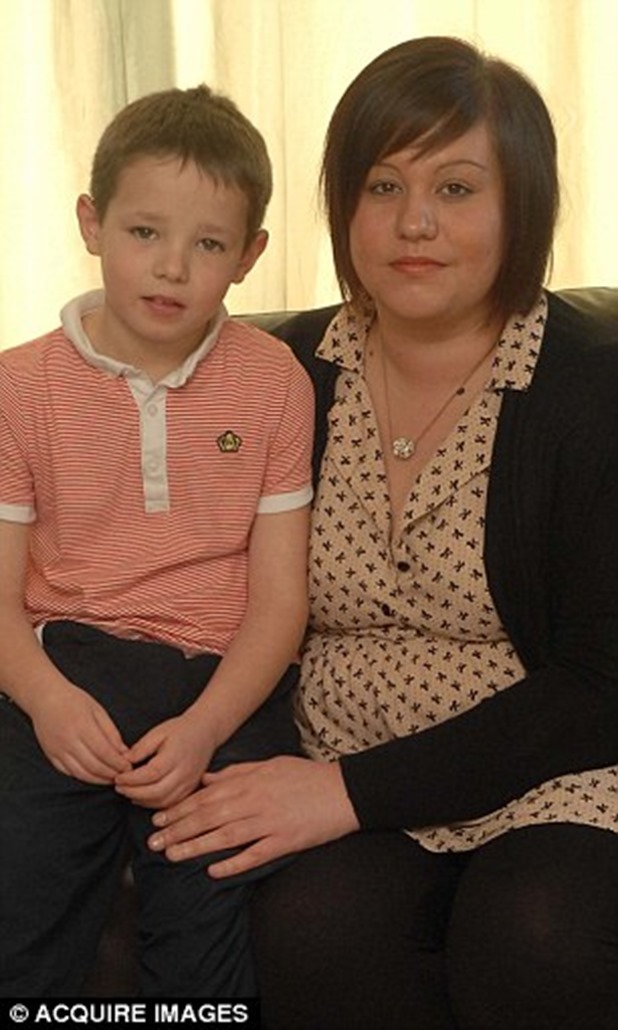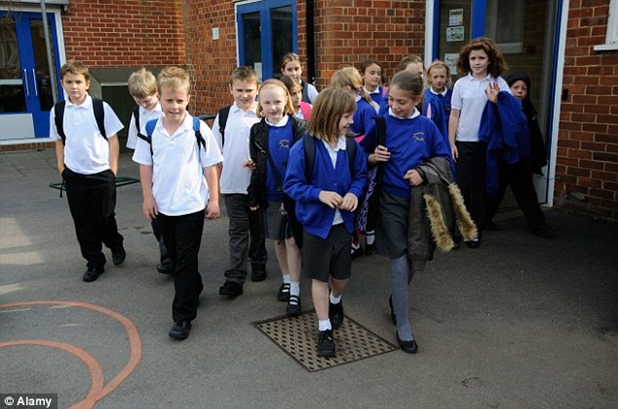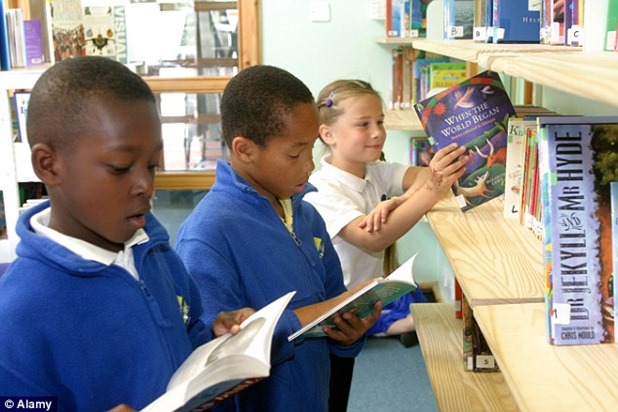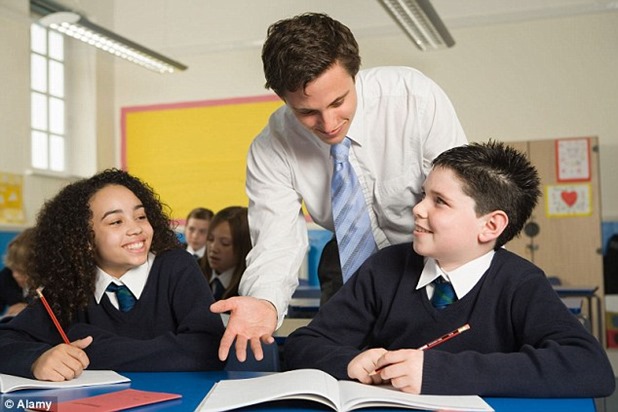Sven Longshanks
Daily Stormer
January 18, 2015

The anti-White authorities are so desperate to make White people feel guilty that they are now branding children as young as five years old as ‘racists.’
Punishing a child when they know they have done nothing wrong is a sure-fire way to get them to reject your authority.
The more the cultural marxists persecute young White children like this, the more nationalists there are going to be in the future.

Summoned to a meeting at her seven-year-old son’s primary school, Hayley White was prepared for a quick chat about his behaviour.
But when she was told that Elliott had been at the centre of an ‘incident’ with another pupil that was so serious she would have to sign an official form admitting he was racist, she refused to believe what she was hearing.
‘When I arrived at the school and asked Elliott what had happened, he became extremely upset,’ said Ms White, who is a 32-year-old NHS worker. ‘He kept saying to me: “I was just asking a question. I didn’t mean it to be nasty”.’
It turned out that while in the playground Elliott had approached a four-year-old boy and asked him whether he was ‘brown because he was from Africa’. On returning home, the younger boy had told his mother about the comment, and she had informed the school, hoping that they could have a quiet word with Elliott.
Instead, the school’s anti-racism policy swung into action in full force.
At a meeting with Elliott’s teacher and the deputy head of Griffin Primary School in Hull, Ms White was asked to read a copy of the school rules, and in particular its zero-tolerance policy on racism.
‘I was told I would have to sign a form acknowledging my son had made a racist remark, which would be submitted to the local education authority for further investigation,’ she said. ‘I refused to sign it, and I told the teacher that in no way did I agree the comment was racist. My son is inquisitive. He always likes to ask questions, but that doesn’t make him a racist.’
It was a point echoed by Karl Turner, Labour MP for Kingston-upon-Hull East. ‘It seems the matter has been taken out of all proportion, and common sense seems to have gone completely out of the window,’ he said.
No doubt that is a conclusion that most right-thinking people would also reach.
But the reality is that across the country each year, thousands of children as young or even younger than Elliott are being branded racists, homophobes and bigots over minor school squabbles, or even innocent questions.

Few such incidents are ever discussed, because unlike Elliott’s mother — who bravely spoke out about his treatment three years ago — most parents are so shocked by the accusations levelled at their child that they dare not challenge them publicly.
An obsession with equality and diversity also appeared to be at the root of a news story this week about Ofsted inspectors who asked children aged ten at a Christian school if they knew what lesbians ‘did’. They are also said to have questioned pupils about transsexuality and asked if any of their friends felt trapped in ‘the wrong body’.
But there is something particularly toxic about allegations of racism, not least because there is a danger that the more children are branded racist, the more divisions will be sown between children of different colours and creeds where none existed before.
Shockingly, thanks to a desperation to satisfy equalities legislation, one-off comments by pupils aged just three or four are being officially recorded by over-zealous teachers.
And while in the past these reports might have simply focused on supposed ‘racism’, in some areas of the country teachers are now being encouraged to note down an ever-growing range of so-called ‘prejudice-based’ incidents.
This includes behaviour deemed offensive on the grounds of ‘gender identity’, ‘appearance’ and even ‘home circumstances’ — for example calling a male fellow pupil a ‘girl’, or ‘posh’ can count as abuse.
Experts fear that young children often do not understand the significance of what they are saying, and that dealing with them in such an overblown manner risks exaggerating a minor issue.
Worse still, they warn that there can be serious consequences for young children, who can effectively end up being branded as bigots throughout their school career.
This is because some primaries are passing records on to each child’s next school, which means the damaging allegations stay with them into their secondary education.
‘Once you start recording in this way, a label is attached to a child which in many, many cases is grossly unfair because the child does not understand what they have said,’ says Chris McGovern, chairman of the Campaign for Real Education.
‘It can also create a climate of fear because the child does not then know what they can or can’t say. The politically correct agenda dominates over the interests of children — if the label carries on through the rest of their school career, it can be very dangerous.’

